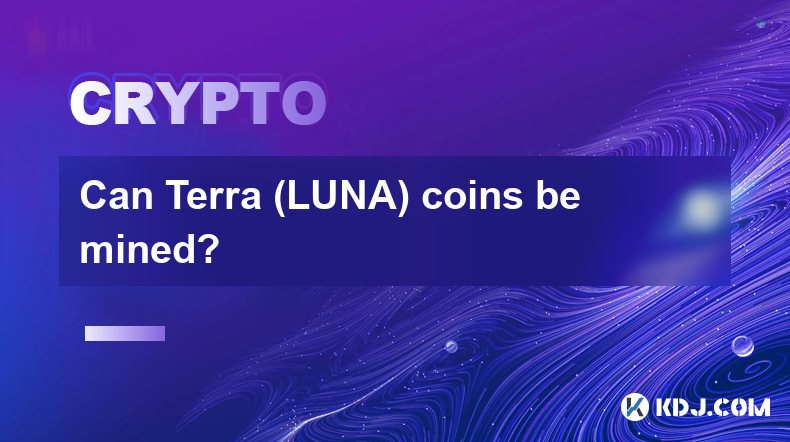-
 Bitcoin
Bitcoin $94,900.9610
0.08% -
 Ethereum
Ethereum $1,777.0522
-2.62% -
 Tether USDt
Tether USDt $0.9999
0.00% -
 XRP
XRP $2.1353
-1.04% -
 BNB
BNB $599.6998
0.09% -
 Solana
Solana $144.5163
-1.58% -
 USDC
USDC $1.0000
0.00% -
 Dogecoin
Dogecoin $0.1685
-2.23% -
 Cardano
Cardano $0.6599
-1.68% -
 TRON
TRON $0.2452
-1.51% -
 Sui
Sui $3.2341
-6.31% -
 Chainlink
Chainlink $13.5500
-1.68% -
 Avalanche
Avalanche $19.7510
-0.28% -
 UNUS SED LEO
UNUS SED LEO $8.7109
0.58% -
 Stellar
Stellar $0.2568
-2.44% -
 Toncoin
Toncoin $3.0243
0.83% -
 Shiba Inu
Shiba Inu $0.0...01256
-2.30% -
 Hedera
Hedera $0.1739
-1.48% -
 Bitcoin Cash
Bitcoin Cash $357.5985
0.37% -
 Hyperliquid
Hyperliquid $20.5224
0.72% -
 Litecoin
Litecoin $83.5744
-4.09% -
 Polkadot
Polkadot $3.9325
-1.11% -
 Dai
Dai $1.0001
0.00% -
 Monero
Monero $286.0631
2.72% -
 Bitget Token
Bitget Token $4.2942
-0.25% -
 Ethena USDe
Ethena USDe $1.0003
0.00% -
 Pi
Pi $0.5789
-2.25% -
 Pepe
Pepe $0.0...07851
-2.10% -
 Bittensor
Bittensor $364.8449
-2.86% -
 Uniswap
Uniswap $4.8840
-2.52%
Can Terra (LUNA) coins be mined?
Terra (LUNA) coins cannot be mined through the traditional energy-intensive process of solving complex mathematical problems, as the network utilizes a Proof-of-Stake mechanism that involves staking for consensus and rewards.
Dec 08, 2024 at 08:11 am

Can Terra (LUNA) Coins be Mined?
Understanding Terra (LUNA) and its Mining Mechanism
Terra (LUNA) is a decentralized blockchain protocol that leverages a unique Proof-of-Stake (PoS) consensus mechanism, known as the Tendermint consensus algorithm, to secure its network and validate transactions. Unlike traditional blockchain networks, which rely on energy-intensive mining processes to create new coins, Terra (LUNA) utilizes staking to incentivize network participation.
Staking in Terra (LUNA)
Staking is the process of holding and locking up Terra (LUNA) tokens for a specified period to participate in the network's consensus mechanism and earn rewards. Validators, who are responsible for validating transactions and securing the network, are selected based on the amount of LUNA they have staked.
Role of Staking in Terra (LUNA)
Staking serves several crucial roles in the Terra (LUNA) ecosystem:
- Network Security: Staking incentivizes users to actively participate in the network, contributing to its resilience and stability.
- Block Creation and Validation: Validators use their staked LUNA to create and validate new blocks in the blockchain, ensuring the integrity and accuracy of the ledger.
- Transaction Fees: Transaction fees on the Terra (LUNA) network are distributed among validators based on their stake, further incentivizing participation.
Economic Implications of Staking
Staking has significant economic implications for the Terra (LUNA) ecosystem:
- Reduced Transaction Costs: Validators compete for block creation, leading to lower transaction fees for users.
- Increased Network Stability: Staking increases the number of validators participating in the network, improving its stability and ability to withstand malicious attacks.
- Increased Token Value: Staking rewards incentivize users to hold LUNA, which can contribute to its price appreciation.
Distinctions between Mining and Staking
It is essential to differentiate between mining and staking in the context of Terra (LUNA):
- Mining: Refers to the energy-intensive process of solving complex mathematical problems to create new coins in proof-of-work blockchains.
- Staking: Involves holding and locking up coins to participate in the network's consensus mechanism and earn rewards.
Conclusion
Terra (LUNA) coins cannot be mined in the traditional sense, as the network employs a Proof-of-Stake consensus mechanism that relies on staking rather than mining. Staking plays a vital role in securing the Terra (LUNA) network while providing economic incentives for network participation.
Disclaimer:info@kdj.com
The information provided is not trading advice. kdj.com does not assume any responsibility for any investments made based on the information provided in this article. Cryptocurrencies are highly volatile and it is highly recommended that you invest with caution after thorough research!
If you believe that the content used on this website infringes your copyright, please contact us immediately (info@kdj.com) and we will delete it promptly.
- Can $1,500 Flip into over $13,500 in Just a Few Weeks?
- 2025-05-07 02:35:12
- BTFD Coin (BTFD): The Next Big Meme Coin Explosion Could Be Right Under Your Nose
- 2025-05-07 02:35:12
- A small group of crypto traders made nearly $100 million
- 2025-05-07 02:30:12
- Maxine Waters Objects Crypto Market Structure Bill
- 2025-05-07 02:30:12
- While top-tier cryptocurrencies dominate headlines, a quiet contender like Render (RNDR) is gaining traction among savvy investors.
- 2025-05-07 02:25:12
- With 2025 Setting the Stage for Massive Crypto Expansion, Investors Are Scanning the Market for the Top Gainers
- 2025-05-07 02:25:12
Related knowledge

BSV transaction fees suddenly increased? How to adjust the handling fee to save costs?
May 02,2025 at 06:42am
Understanding BSV Transaction FeesBSV (Bitcoin SV) aims to fulfill the original vision of Bitcoin as a peer-to-peer electronic cash system. One of the key elements in this system is the transaction fee, which compensates miners for including transactions in the blockchain. Recently, users have noticed a sudden increase in BSV transaction fees, which can...

Does BSV transaction require real-name authentication? Is anonymous trading feasible?
May 03,2025 at 03:14pm
The question of whether BSV (Bitcoin SV) transactions require real-name authentication and whether anonymous trading is feasible is a complex one, deeply intertwined with the broader dynamics of cryptocurrency regulations and blockchain technology. Let's delve into these aspects to provide a comprehensive understanding. Understanding BSV and Its Transac...

How to solve the high slippage of BSV transactions? How to choose between limit and market orders?
May 02,2025 at 09:01pm
High slippage can be a significant concern for traders dealing with Bitcoin SV (BSV) transactions. Slippage refers to the difference between the expected price of a trade and the price at which the trade is actually executed. This can occur in fast-moving markets or when there is low liquidity. To address this issue, understanding the mechanics of slipp...

What if BSV transactions are frozen? How to contact customer service to unblock the account?
May 05,2025 at 05:01am
When dealing with Bitcoin SV (BSV) transactions, encountering issues such as frozen transactions can be a stressful experience. This article will guide you through the process of understanding why BSV transactions might be frozen and how to contact customer service to unblock your account. We will cover the reasons behind frozen transactions, steps to t...

What if BSV node synchronization is slow? How to optimize local wallet performance?
May 03,2025 at 04:35pm
When dealing with BSV (Bitcoin SV) node synchronization and optimizing local wallet performance, it's crucial to understand the underlying issues and implement effective solutions. Slow synchronization and poor wallet performance can significantly hinder your experience with the BSV network. This article will delve into the reasons behind slow BSV node ...

How to check BSV transaction records? How to use the blockchain browser?
May 03,2025 at 06:50am
Checking BSV (Bitcoin SV) transaction records and using a blockchain browser are essential skills for anyone involved in the cryptocurrency space. These tools allow you to verify transactions, check wallet balances, and understand the flow of funds on the blockchain. This article will guide you through the process of checking BSV transaction records and...

BSV transaction fees suddenly increased? How to adjust the handling fee to save costs?
May 02,2025 at 06:42am
Understanding BSV Transaction FeesBSV (Bitcoin SV) aims to fulfill the original vision of Bitcoin as a peer-to-peer electronic cash system. One of the key elements in this system is the transaction fee, which compensates miners for including transactions in the blockchain. Recently, users have noticed a sudden increase in BSV transaction fees, which can...

Does BSV transaction require real-name authentication? Is anonymous trading feasible?
May 03,2025 at 03:14pm
The question of whether BSV (Bitcoin SV) transactions require real-name authentication and whether anonymous trading is feasible is a complex one, deeply intertwined with the broader dynamics of cryptocurrency regulations and blockchain technology. Let's delve into these aspects to provide a comprehensive understanding. Understanding BSV and Its Transac...

How to solve the high slippage of BSV transactions? How to choose between limit and market orders?
May 02,2025 at 09:01pm
High slippage can be a significant concern for traders dealing with Bitcoin SV (BSV) transactions. Slippage refers to the difference between the expected price of a trade and the price at which the trade is actually executed. This can occur in fast-moving markets or when there is low liquidity. To address this issue, understanding the mechanics of slipp...

What if BSV transactions are frozen? How to contact customer service to unblock the account?
May 05,2025 at 05:01am
When dealing with Bitcoin SV (BSV) transactions, encountering issues such as frozen transactions can be a stressful experience. This article will guide you through the process of understanding why BSV transactions might be frozen and how to contact customer service to unblock your account. We will cover the reasons behind frozen transactions, steps to t...

What if BSV node synchronization is slow? How to optimize local wallet performance?
May 03,2025 at 04:35pm
When dealing with BSV (Bitcoin SV) node synchronization and optimizing local wallet performance, it's crucial to understand the underlying issues and implement effective solutions. Slow synchronization and poor wallet performance can significantly hinder your experience with the BSV network. This article will delve into the reasons behind slow BSV node ...

How to check BSV transaction records? How to use the blockchain browser?
May 03,2025 at 06:50am
Checking BSV (Bitcoin SV) transaction records and using a blockchain browser are essential skills for anyone involved in the cryptocurrency space. These tools allow you to verify transactions, check wallet balances, and understand the flow of funds on the blockchain. This article will guide you through the process of checking BSV transaction records and...
See all articles




















































































